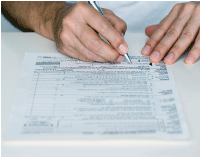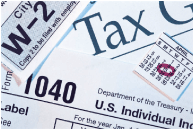CARL WATTS & ASSOCIATES
December 10, 2012

|
Washington DC
|
tel/fax 202 350-9002 |
Prepare for the Preparer and
Your 2012 Tax Return
Your 2012 Tax Return
|
Troubles viewing this message? View in browser online here
|
|
Expense records:
|
||||||||||||||||||||||||||||||||||||||||||||||||||||||||||||||||||||||||||||||
|
||||||||||||||||||||||||||||||||||||||||||||||||||||||||||||||||||||||||||||||
 |
||||||||||||||||||||||||||||||||||||||||||||||||||||||||||||||||||||||||||||||
| Additional tips: |
||||||||||||||||||||||||||||||||||||||||||||||||||||||||||||||||||||||||||||||
| If you are uncertain about the usefulness of some of your documents, make a list or bring them with you to consult with your tax preparer. |
||||||||||||||||||||||||||||||||||||||||||||||||||||||||||||||||||||||||||||||
| If you are missing forms (W-2’s or 1099’s for instance), contact your employer, bank or broker to ask for a copy, or you can get copies of your tax documents from the IRS. |
||||||||||||||||||||||||||||||||||||||||||||||||||||||||||||||||||||||||||||||
| Make a list of all the questions you want to ask your tax-preparer. |
||||||||||||||||||||||||||||||||||||||||||||||||||||||||||||||||||||||||||||||
| Remember, your tax preparer is not responsible for the information you supply, so please double check to make sure it is accurate. |
||||||||||||||||||||||||||||||||||||||||||||||||||||||||||||||||||||||||||||||
| If you don’t have all your information on time, you can always apply for an extension, but keep in mind you still need to pay your due taxes by tax day, which in 2013 is on April 15. |
||||||||||||||||||||||||||||||||||||||||||||||||||||||||||||||||||||||||||||||
| Make sure to keep copies of your tax returns (as well as all related documents) for at least three years starting on tax return due date. |
||||||||||||||||||||||||||||||||||||||||||||||||||||||||||||||||||||||||||||||
| If filling out a tax organizer seems like a lot of work on your part, try to see it as a good exercise on how to organize your tax documents in the future, it will certainly look much easier the following year. |
||||||||||||||||||||||||||||||||||||||||||||||||||||||||||||||||||||||||||||||
| One important suggestion for this year, keep an eye out for late year legislative changes that can impact your future taxes. |
||||||||||||||||||||||||||||||||||||||||||||||||||||||||||||||||||||||||||||||
| And, of course, always remember we are always here, ready to be of service to you. |
||||||||||||||||||||||||||||||||||||||||||||||||||||||||||||||||||||||||||||||
 |

|
It doesn’t have to be very complicated, it doesn’t need to hurt or worry you, and it can even be worth doing … yes, it’s your tax return that we’re talking about.
|
||||||||||||||||||||||||||||||||||||||||||||||||||||
|
The 2012 tax return is no different from any other year, except if you have some specific or delicate matters to deal with.
 |
||||||||||||||||||||||||||||||||||||||||||||||||||||
|
|
||||||||||||||||||||||||||||||||||||||||||||||||||||
|
In any case, all you need to do is call your tax professional and they would deal with it all.
|
||||||||||||||||||||||||||||||||||||||||||||||||||||
|
What you should know is that any tax professional is going to ask you for all kinds of information, documentation, data and statements, cards and records.
|
||||||||||||||||||||||||||||||||||||||||||||||||||||
|
First of all, do you need to file an income tax return?
|
||||||||||||||||||||||||||||||||||||||||||||||||||||
|
The IRS says that you must file a federal income tax return if your income is above a certain level, which varies depending on your filing status, age and the type of income you receive.
|
||||||||||||||||||||||||||||||||||||||||||||||||||||
|
Even if you don’t have to file, there still are some very good reasons you may want to:
|
||||||||||||||||||||||||||||||||||||||||||||||||||||
|
||||||||||||||||||||||||||||||||||||||||||||||||||||
|
What kind of documents do you need for your tax return?
 |
||||||||||||||||||||||||||||||||||||||||||||||||||||
|
To have everything organized, most tax prepares will provide you with an income tax organizer to help you supply all needed information.
|
||||||||||||||||||||||||||||||||||||||||||||||||||||
|
Whether you are an old-fashioned shoebox user or a well-organized person, here is a checklist of the most commonly needed papers.
|
||||||||||||||||||||||||||||||||||||||||||||||||||||
|
Identity records:
|
||||||||||||||||||||||||||||||||||||||||||||||||||||
|
||||||||||||||||||||||||||||||||||||||||||||||||||||
|
Income records:
|
||||||||||||||||||||||||||||||||||||||||||||||||||||
|
||||||||||||||||||||||||||||||||||||||||||||||||||||
